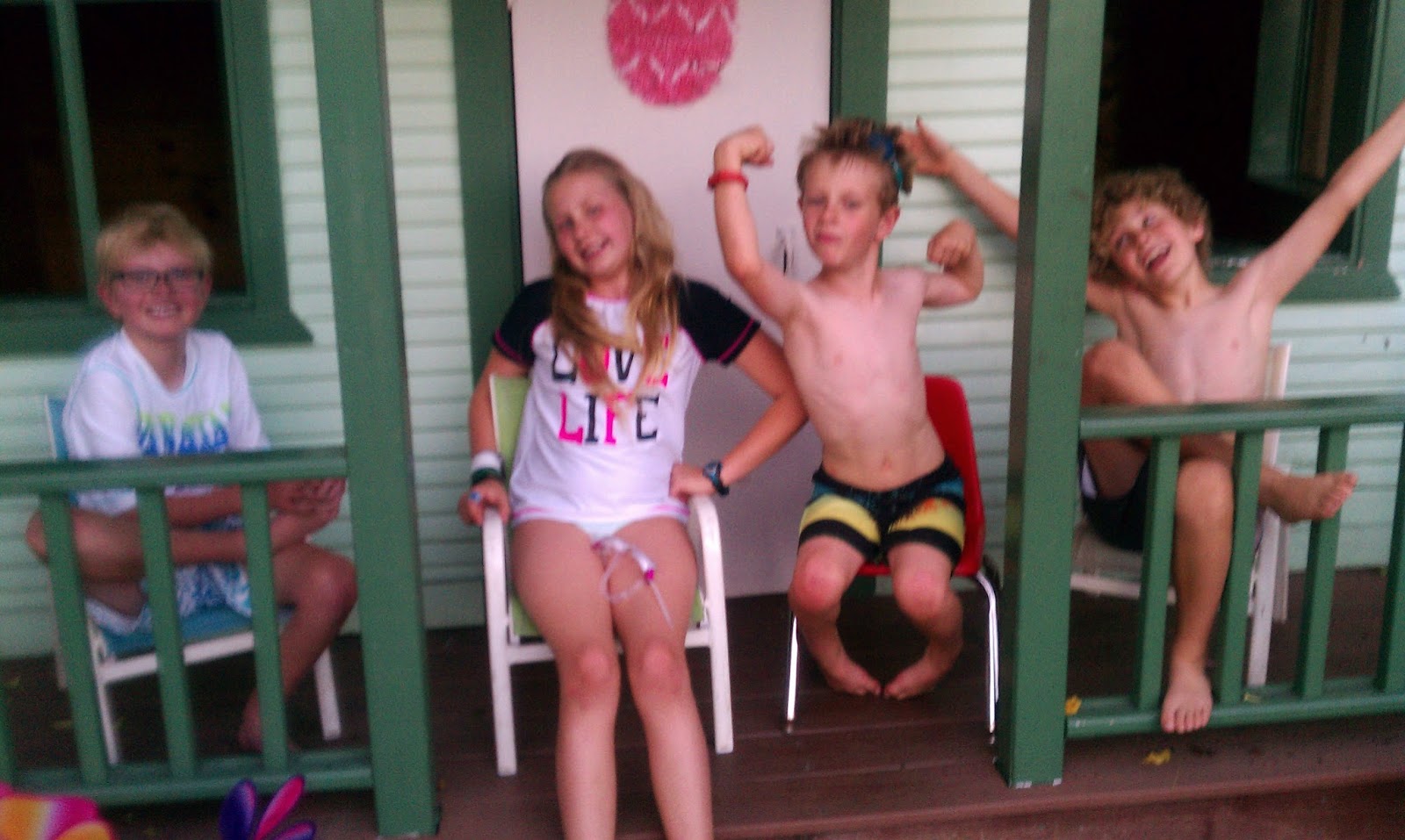Glossy magazines glorify tragedy. Everything is summed up in 800 words and the tragedy becomes a feel-good piece. It’s spun so that a positive message is felt by the person experiencing the loss as well as person reading about the loss. It's fake. A handful of well-meaning people, who have probably read those glossy articles or seen glossy TV, have told me to snap out of it, get out of bed, out of the house, to be grateful for what I had/have, and face the world. That Riley’s goodness supersedes his death. Society wants me "to get over it," to have "closure," to be grateful that I have other kids. Not every story has a moral. And no matter how we spin it,
Riley was better alive than he is dead.*
C only knew life as Riley's younger brother. He knew who he was because Riley reflected who he was back at him. For years, his sentences ended with: “Right Riley?” And I only know parenthood as Riley's mom, as the guardian of the boy with the crap heart. And now that he's died, I'm lost and I feel like a cliché. I'm
broken, fragile, and shattered. I have lost any sense of self-esteem, I cower away from people and situations, am forgetful, stutter at times, am easily startled, and am entirely exhausted and drained. I start sentences with the phrase, “My therapist says…” For the rest of my life, I will try to figure out how to live without him, and I'm being gentle on myself and helping around the house and with the kids when I feel up to it. I suppose doing anything
beyond the comfort of bed is progress from where I was a handful of weeks ago.
It sounds bitchy and horrible, but my other children are not Riley, and I don't feel grateful for much of anything right now (that doesn't mean I don't have things to be grateful for...my list is very long, but it's hard to have perspective on that even though I know there is much to be grateful for). I always told Riley, "Don't ever let your heart be an excuse for not trying your best." And he has recently told me, "Don't ever let my death be an excuse to lie around in bed all day." I hear him. I hear all of you. I'll eventually get there.
Also,
Riley is with me in spirit. He is part of my essence, just as I was part of his. He is everywhere. And yet he is nowhere. And having him in spirit is not the same as having his skin to caress, his hand pressed into mine, his hair to bury my face into. They are different. Your attempts to convince me otherwise are your attempts to make sense of something that doesn’t make sense and will never make sense, no matter how many times you throw God’s will into the mix. And if my brand of mourning happens from the comfort of my bed with my laptop warming my knees, I'm okay with that.
 |
| My son last Christmas, not hiding his scars |
So yes, I have four children and I don’t have four children. I can hug three of them. I can tuck three of them into bed. I can hear three children’s voices. One of them
I can hug only in my mind, I can listen to only in my thoughts, and his empty bed will never we warmed by his beautiful and imperfect body. I assure you, gentle reader, that they are not interchangeable.
For 11 1/2 years, I rehearsed Riley's death. I imagined it his whole life. And as horrible as I imagined it, imagining it is nothing like living it. The permanence of it is crushing. With each of his other hospitalizations, it was horrible and horrific, but it ended. He eventually stabilized and came home. There is no coming home. There is no going back. This is forever and all I want is for it to unwind itself. But here I am instead. I will lie in bed and write and cry. I will
take C to the dentist and the kids to school. I will be mad and scream into the carpet until I burst hundreds of capillaries around my eyes. I will also laugh and feel lightened when Riley sends letters into my head as he did the other day. It's so fucked up and unbelievable and unbelievably true. Yes, my husband and my other people need me. My therapist says that life is a marathon and not a sprint. And I get to fumble around in grief on my own timeline, even if it makes you uncomfortable, even if you think I'm doing it wrong.
My spectrum of feelings on any given day—or hour, or minute, for that matter—is broad, nonsensical and nonlinear. I will take the time to grieve in my own way, feeling all of my feelings that crush and motivate, that paralyze and swell, that punish and rage, that open the lines to communicate and
clamp them down again, and I will not apologize for any of it. Rant complete...
*To be clear, Riley alive and suffering is not better than him being dead and free from medical horrors. When I say, "Riley was better alive," I’m talking about Riley living, away from the hospital, going to school, spending time with friends and family.




























